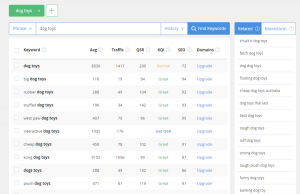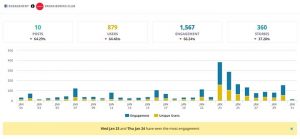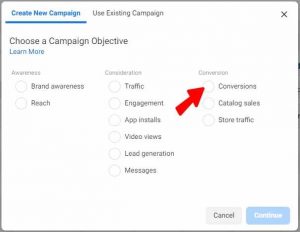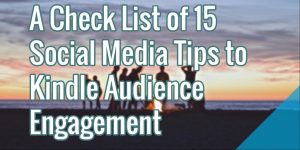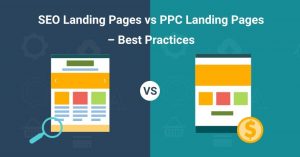In the world of online marketing, experts have many factors to consider in order to make sure their webpages are showing up as results on search engines. Search Engine Optimization, or SEO, is the overall term employed for the act of getting your pages recognized by search engines and placed at or near the top of the results page. Search engines have mysterious ways of recognizing data, and sorting it by relevance to keyword searches. Google, the amazing search engine that most people are very familiar with, has recently added to its chest of tools to help show users relevant information in response to queries. This new tool is called RankBrain. What is RankBrain? Read on for an explanation, and how it affects your marketing strategies.

The Basics
Google’s powerful engine has a search algorithm named “Hummingbird.” There are many components to Hummingbird, of which RankBrain is one. To analogize, if the search engine were an internal combustion engine, with many critical parts that work together, such as pistons, spark plugs and an alternator, Hummingbird would be the engine and RankBrain would be one of those critical parts. Without it, the engine wouldn’t turn over and you’d be stuck in your driveway (or garage, for the fortunate, tidy few who actually park in there). Without this component, a query that you enter in the search toolbar would turn up results, but they may not be relevant to what you were looking for, and you would be stuck without an answer to your question.
You’ve most likely heard of artificial intelligence, or AI, right? True AI is, thankfully, still stuck in science fiction, but for practical purposes it refers to machines (computers) that are able to learn. In this sense, learning is different from programming. Learning is what organisms with a brain (people and animals) are supposed to do, but people who work with computers are now able to program them to learn. RankBrain falls into this category of AI.
While in offline mode, it assembles data and puts it into a fashion that makes sense. Because it is offline, in order to receive data it has to be fed. Naturally, Google is doing the feeding, and it feeds a carefully chosen diet. It learns by consuming words and turning them into vectors, which are mathematical by nature, and thus easier for a computer to understand. By doing this, when the search engine receives long queries, it can assimilate relevant answers. At this point in time, it is processing a very large amount of queries each day, which allows it to learn more and more information, so that future queries will turn up excellent results. However, it doesn’t handle all searches. Short, simple queries using a few keywords don’t go through the AI machine.
How RankBrain Affects the Algorithm
As the search engine crawls the web, reading pages, it looks for certain signals that tell it how relevant the page is to search results. There are many of these signals, perhaps as many as 200, with variations numbering in the tens of thousands. Examples include being mobile friendly, having words in bold font, speed of page loading, headers used and even colors. Some signals are more meaningful than others. The top three signals that determine page ranking are links, content and RankBrain.
Where this AI component really shines is its ability to deliver relevant search results even when the query is complicated, long or doesn’t use the best keywords. If you’re in the habit of keeping your queries short and direct, without filler words such as in, and, how, etc. then you’ve probably experienced good search results. However, some users will type a complete sentence with punctuation into the query box. RankBrain is able to extract the keywords, substitute synonyms where necessary, and deliver the same results that would’ve turned up with a short, direct query.
Another awesome characteristic of RankBrain is that it will vary the search results based on country of origin. For instance, if a query has to do with units of measurement, the results will be given in metric if you live in Canada, but if you are in the US you’ll receive results in the imperial system (cups, miles etc.). People around the world really appreciate this feature, as it saves time in making unit conversions, especially for busy moms who are in the middle of figuring out a recipe for cupcakes for the class party.
So far, it is proving to be extremely accurate. It learns quickly, and its ability to recognize new patterns in popular queries is astounding. Based on these patterns, the Search Engine Results Page, or SERPS are being constantly revised and updated. This is good, because in business, popular culture and politics, new terms are being coined regularly. The old-fashioned printed dictionary and encyclopedia struggle to keep up with modern terms and concepts, but with AI constantly learning from the Internet, we will always have relevant search results.
What it Means to Marketers
What is RankBrain to SEO marketers? Keywords are still the foundation of a solid SEO program. With this new technology, you may find it more and more challenging to land at the top of the organic listings. In the past, making it to the first page of the search results seemed good enough. But, as consumers become more convinced that the top three results will give satisfactory answers to their questions, they seldom look any farther down the page. So, your new mission is to make sure your site is one of those in the top three. How do you do that?
As noted above, RankBrain is the third most important signal that tells the search engine the relevance of the results. The first two are links and content. As long as your site still has links that work, and plenty of quality content with keywords used appropriately, the chances are good that your ranking will be high. Here are a few pointers to keep in mind:
- Make sure your content is tightly focused on your topic. Pages with a lot of random information will never make it to the top three spots.
- Make sure your site loads quickly, and employs the latest technology. Tired old webpages that have huge pictures and lame graphics are buried somewhere in the bottom of the heap.
- Make sure your content digs deeply into your subject matter. Articles should answer pertinent questions that are commonly asked, but they should also strive to present information that is up and coming, that is, questions that haven’t even been asked yet. Obviously, this requires you to be an expert in your field.
- Make sure you are an authority on the topic you are discussing. As an expert, people will consider you to be a trusted source of information. If you have frequent visitors, your ranking will improve.
- Make sure you are publishing new articles on a regular basis. Whether you have a blog or a news site, fresh information will keep visitors coming back for more.
By utilizing the tips outlined above, RankBrain will learn that your site has valuable information and it will place it higher. By the way, if any of the sites that you manage have recently coined a popular new term, those sites may have a solid chance of landing near the top of the results page. This can’t really be considered a tip, because it’s anyone’s guess which direction popular culture will be taking next, but who knows, maybe you’ll get lucky.
So far, Google reports being highly satisfied with their new machine learning component. Consumers and tech experts alike may be skeptical of AI, but with this new technology outperforming engineers, it’s possible to see how it may become the gold standard in the near future. As search results become more and more accurate, it will become apparent that users won’t be able to experience acceptable results without it. Most people are unable to even imagine how much work went into the creation of this new wonderful product, but you can bet they appreciate it.
Learn More to Stay in the Game
If you are interested in learning more about RankBrain, the nitty-gritty details of how it works and how it affects your marketing strategies, you’ll want to do some research on vectors, or the way words and phrases can be connected mathematically. Vectors are what it uses to teach itself relationships between words. An example given by Google is that the AI search component taught itself the capital cities of Europe just by reading many news articles. This is the type of learning it is capable of so far. What the future holds is unknown so far, but chances are good that improvements will continue to be made.
As a marketing expert, you know you have to stay ahead of the game just to stay in the game. By learning more about SEO and how your pages land on SERPS you are on the right track. Just remember to keep your content focused, fresh and authoritative, with live links and you are sure to be recognized by RankBrain.
Digital & Social Articles on Business 2 Community(33)


